|
Besides receiving and visiting Our Lord in the Blessed Sacrament at Mass and Adoration, I find that the most nourishing aspect of my spiritual life is friendship with the saints. The Church holds celebrating the saints and asking for their intercession in high regard, as the Solemnity of All Saints, which falls on November 1st each year, is a holy day of obligation. The Vigil of All Saints, then, falls on October 31st each year. One goal of the Christian is to engage in prayer with God, and prayer, simply put, is conversing with God. Each day, we can offer our work to God and talk to Him frequently. This is not always easy, though, and I have found that friendship with the saints helps immensely. A friendship, which is the mutual willing of the good between people, is cultivated with communication and time spent together. Aristotle and Shakespeare, in their genius commentaries on friendship, always return to the simplicity of authentic friendship. Developing a friendship with the saints does not need to be overly-complex. It can also be founded upon communication and time spent together, ultimately bringing us closer to God and strengthening our communication with Him. Communicating daily with the saints further orients our minds to the supernatural, to the existence of the “things…invisible” that we recite in the Creed, and it also strengthens us in the fight for our souls. By communicating with the saints, we will become more like the saints, who in their devotion to Christ became like Christ. Thus, the saints will help us to become more Christ-like. The poet Gerard Manley Hopkins gets at this point in one of his poems: I say móre: the just man justices; Keeps grace: thát keeps all his goings graces; Acts in God's eye what in God's eye he is -- Chríst — for Christ plays in ten thousand places, Lovely in limbs, and lovely in eyes not his To the Father through the features of men's faces. The “just man” is the saint, and the saint’s Christ-like actions help him to become like Christ. As I mentioned in my last blog, stories of the saints are dramas of the highest caliber. Each saint had a unique personality and found their way to heaven in their own special, grace-filled way. There are so many saints that everyone can find someone they relate to or want to emulate. Below, I have listed just a few of my friends, and I pray that they will intercede for you! Sts. Peter and Paul, St. Edmund Campion, St. Ignatius, St. John the Beloved Disciple, St. Luke, St. Catherine of Sienna, St. John Paul II, Bl. Pier Giorgio Frassati, Bl. John Henry Newman, Sts. Thomas More and John Fisher, St. Robert Southwell, St. Henry Walpole, St. Aloysius Gonzaga, St. Robert Bellarmine, St. John Berchmans, St. Francis Xavier, St. Leo the Great, St. Augustine, St. Vincent Pallotti, St. Thomas Aquinas, St. Therese of Lisieux, St. Teresa of Avila, St. Josemaria Escriva, St. John Vianney, St. Joseph, Guardian Angels, Our Lady… Ora pro nobis! **This post was originally published on 10/31/2017**
0 Comments
In October 2014, I was invited by Fr. Frank Donio, S.A.C. to join the Catholic Apostolate Center as their Program Manager. I remember when I got the call to work for the Center. I was actually on the road driving on a Tuesday evening to my work at a large international retailer when he called and said he'd like to offer me a job with the organization officially. Eight years and many projects later, it's been a pleasure watching the organization grow and evolve as it has reached the end of the celebration of its tenth anniversary year. There are many things that I could list that I am proud to support and highlight. Still, a couple of essential impact pieces would be related to Living as Missionary Disciples: A Resource for Evangelization. Among these are the videos created to help parishes have a deeper understanding of our missionary call and the discussion materials and online free course on the topics of Encounter, Accompany, Community, and Send, plus the six dimensions of pastoral planning. I have used this material in my work as a professor, and even though the book is a few years old, the material is as relevant as ever. The other piece to highlight from the past is the Apostles on Mission program, which is available as a course online for anyone to attend or as physical small group that parishes and dioceses have implemented for their groups' further development of discipleship—or, as we would say, apostolic—activity. As a program designed to give our crucial audience—active Catholics—an overview of topics related to missionary discipleship and evangelization, I'm proud to see the people who have used the materials and those who have helped contribute to the material in different ways. These are just a couple of things we've worked on over the years, and in order not to make this an ad, I wanted to talk about the reason why we do so many things and why I hope this will be why the mission that the Center will carry forward for many years to come. First and foremost, we are a ministry of the Immaculate Conception Province of the Society of the Catholic Apostolate. Through their founder, St. Vincent Pallotti, we understand the importance of apostolic zeal and openness to opportunities from the Holy Spirit. This understanding is well encapsulated in our tagline or motto: Reviving Faith, Rekindling Charity and Forming Apostles. With this mission, we are trying to find forms of revitalization that encourage a deepening of faith and lead to apostolic zeal in others through good works and a hope-filled attitude. Through our resources and materials, we try to equip active Catholics with the tools needed in the modern world to engage others positively in the faith. As we move into our eleventh year as an organization, it's essential to look back at what we have done, but more importantly, it’s essential to remind ourselves to see what things we will carry forward another ten or twenty years in the future. That belief in the mission, promotion of the ability for all to be a disciple or apostle via their Baptism, and finding creative ways to support the mission are all crucial attitudes that will carry us into the future. As much as they are essential for us, all the baptized should be engaged in these same principles, and we hope that through our work and resources, you will be able to assist your families, careers, and groups in spreading the Joy of the Gospel.
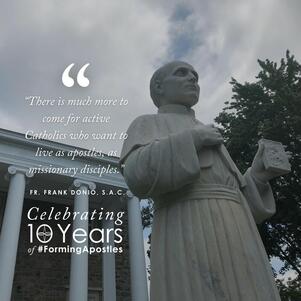 Reviving faith, rekindling charity, and forming apostles are what we do at Catholic Apostolate Center. We do it because that is what St. Vincent Pallotti did in Rome in the first half of the nineteenth century and what his spiritual children have done for 187 years. As we conclude our tenth anniversary celebration, we offer gratitude to God, the Infinite Love, for all the blessings that we have received in this ministry. Synodality is now a common word in the Church. From the beginning, the Center team journeyed together with the Holy Spirit in a co-responsible and collaborative way. This way of being is not unique to Catholic Apostolate Center but is at the core of the witness of St. Vincent Pallotti and his spiritual legacy, the Union of Catholic Apostolate. Our second decade has begun well with many new resources and expanded collaboration with various national and international Catholic organizations. There is much more to come for active Catholics who want to live as apostles, as missionary disciples. We look forward to where the Holy Spirit moves this ministry. We discern this in the Cenacle with the Blessed Virgin Mary, Queen of Apostles, and then go forth as apostles in service to Christ and the Church. Thank you for your support over this past decade and know that our prayers are with you. May the Charity of Christ urge us on! In Christ, Apostle of the Eternal Father, Fr. Frank
Look around your workspace. What are some of the items you might have on display? A picture of family or friends, a souvenir from your last work trip, a calendar, coffee mug, some inspirational quotes, maybe a post-it note with an important phone number? These are just some of the common items that many of us have all over our work spaces, whether we work in a cubicle, "pod," or office. With so much time being spent in these work spaces, they have begun to take on the look and feel of an extension of our home. Some of us even spend a lot of time trying to curate a certain look - something that will be pleasing to not only ourselves, but those around us.
As Catholics who consider faith to be an important part of our lives (whether you're working in service to the faith or not), we might find some additional items carefully displayed in our workspace, such as a crucifix, rosary, prayer card, Bible, saint figurine, flag, lapel pin, etc. These are just a few items that would "give yourself away" as someone who might be a person of faith, specifically a Catholic. At my desk, I have a collection of busts/statues. They are a portion of my overall collection that includes historical figures. I used to display all of them at work, but when I changed jobs and ended up with a smaller workspace, I decided to be choosy about who got the spotlight in my Catholic “squad.” All popes, the busts include Francis, Benedict XVI, John Paul II, John XXIII, and Paul VI. They sit neatly next to each other, inviting queries from onlookers and co-workers. When I started my new job, my collection became a conversation piece. As I approached my one-year anniversary at work, I started to reflect on the different interactions I've been able to have because of these figurines’ stoic presence. I'm sure many of us who display any kind of religious or Catholic paraphernalia in our workspace have experienced these interactions. "What do you think about X?" "How do you feel about Y?" "Can you explain to me Z?" Questions can range from who can be a Godparent and why Catholics have a Marian devotion to the difference between a bishop and a cardinal. Of course, because of the recent struggles our Church has been facing, I have also become the person who fields uncomfortable questions and sometimes listen to venting. Choosing to publicly and visually identify as a Catholic is a good thing, but it also comes with its own challenges. I see it as a moment of evangelization. Pope Francis addressed the Bishops of the Episcopal Conference of East Timor during their "Ad Limina" visit in March 2014, saying that everyone is an "active" agent of evangelization. These are words we should all take to heart. By displaying religious items at our workplace, we are opening ourselves up to becoming agents of evangelization! This means we also have the responsibility to answer questions thoughtfully and sincerely. We have to be able to make sure we are giving the right answers or point people to the place where they can find the right answer. When giving our opinions, we have to be cognizant of where someone might be in their own faith journey and ready to provide more resources when asked. We also have to be ready to converse more when the time comes. The Catholic Apostolate Center can be your go-to resource for questions regarding the Catholic faith. With over 30 resources pages on many different topics, you can be sure that when you send someone to the website, the resources from the Vatican, USCCB, and other vetted Catholic sources will give the answers they might be looking for and the opportunity to ask more questions! So, I will leave you with 5 tips for being an active agent of evangelization at work:
Question for Reflection: What are some ways you can evangelize your family, friends, and colleagues? For more resources on becoming an active agent of evangelization, please click here. **This post was originally published on 11/28/2018**
Did you know that as Catholics we commemorate the month of October as the month of the rosary? The rosary calls us to reflect on thelife of Christ through the intercession of Mary, our Blessed Mother. The rosary is an invitation for us to build a relationship with Mary, so that we can better know her son. St. Thomas Aquinas once said, “As mariners are guided into port by the shining of a star, so Christians are guided to heaven by Mary.” One way to get to know Mary is by reading about her life from scripture. Mary’s words are not recorded often, and her actions seem to skim by even more subtly. Even so, the presence of her words and actions are profound, calling us to a deeper relationship with her and her son.
First, we learn from Mary that it is okay to ask questions on our faith journey. When the angel Gabriel announces to her that she will be the mother of the Son of God, she simply asks, “How can this be, since I have no relations with a man?” (Luke 1:34). To know ourselves and have confidence in what we believe, we should always be asking questions. As a teacher, I encourage my students to ask questions all of the time. Although I am not as good as I want to be myself, from Mary I can take courage to ask more questions so that I can learn and grow in hopeful faith. When Mary questioned the angel, she learned: “Nothing will be impossible for God” (Luke 1:37). And from there, we are called to take Mary’s example of humility and trust in her “Fiat” when she says, “Behold, I am the handmaid of the Lord. May it be done to me according to your word” (Luke 1:38). The second lesson that I have learned from Mary in the Bible has had the most profound impact on my life. After the birth of her son, and in the presence of the shepherds and angels, Luke records that “Mary kept all these things, pondering them in her heart” (Luke 2:19). For me, this calls me to a life of deep reflection and intimacy with God. What I keep in my heart can move me closer to God if I invite him to share it with me: the goodness of each day, the little and big miracles, and even the hard and difficult trials. With God, everything is divine and happens with purpose; it is how I react, reflect, and let him mold me with the contents of my heart that I can become most pure. Mary is the perfect model of this. She remembers God’s glory, and holds it fast to her heart. Her life is characterized by this. I want to revel in God’s glory in all things like Mary, so that I can share this joy and love with others, and trust in his goodness when trials arise. Finally, Mary’s last words in the Bible occur at the Wedding of Cana when the reception has run out of wine. She tells her son of his time to perform his first miracle, "They have no wine" (John 2:3), and it seems as though Jesus is not convinced. But next, Mary tells the servers, “Do whatever he tells you” (John 2:5) with the utmost simplicity and confidence. Not only does she know that he is capable of great things, but she knows that her son will do great things. And so we must “do,” too. This message – “do whatever he tells you” – is a call for all of us to follow the words of Christ. Mary can only lead us to her son if we submit to his will with the trust and confidence she has modeled for us. Like Mary, we too must live our life as a Fiat, “Lord, let it be done to me according to your word.” What beautiful gifts Mary gives to us to know her faith and to let her mold us to be more like her son. Do not be afraid to let Mary be the one to lead you to Christ. She is perfect, in that she knows how to live her life for God: “Mary’s greatness consists in the fact that she wants to magnify God, not herself” (Deus Caritas Est, 41). Let her help you magnify the Lord. Today I will be praying the “Magnificat,” which is found in Luke. It is Mary’s prayer of joy and thanksgiving to God. Please join me in asking for Mary’s guidance towards her son, to lead us to a life full of grace as hers. Mary’s Magnificat “My soul proclaims the greatness of the Lord, my spirit rejoices in God my Savior for he has looked with favor on his lowly servant. From this day all generations will call me blessed: the Almighty has done great things for me, and holy is his Name. He has mercy on those who fear him in every generation. He has shown the strength of his arm, he has scattered the proud in their conceit. He has cast down the mighty from their thrones, and has lifted up the lowly. He has filled the hungry with good things, and the rich he has sent away empty. He has come to the help of his servant Israel for he remembered his promise of mercy, the promise he made to our fathers, to Abraham and his children forever.” Luke 1:46-55 *This post was originally published on 10/20/2015*
Today’s feast of Saint Francis of Assisi is often marked with a blessing of pets that tends to draw a crowd. A statue of Saint Francis can be found in many people’s gardens, even those who would not necessarily describe themselves as religious. What is it that is so compelling about this thirteenth-century figure?
In his encyclical Laudato Si’, Pope Francis gives us his own response: “I believe that Saint Francis is the example par excellence of care for the vulnerable and of an integral ecology lived out joyfully and authentically. He is the patron saint of all who study and work in the area of ecology, and he is also much loved by non-Christians. He was particularly concerned for God’s creation and for the poor and outcast. He loved, and was deeply loved for his joy, his generous self-giving, his open heartedness. He was a mystic and a pilgrim who lived in simplicity and in wonderful harmony with God, with others, with nature and with himself. He shows us just how inseparable the bond is between concern for nature, justice for the poor, commitment to society, and interior peace” (Laudato Si’, 10). This description of Saint Francis reveals that he was much more than someone who loved animals. The harmony and peace that characterized his relationship with God, with fellow human beings, and with all of creation was rooted in an understanding of the interconnectedness of all of humanity and our common home. He would call creatures, no matter how small, “brother” or “sister”, not out of a naïve romanticism or a wrongly ordered affection, but out of a conviction that the beauty and goodness of all created things directs us to the infinite beauty and goodness of the Creator. Pope Francis said that Saint Francis viewed the world as “a joyful mystery to be contemplated with gladness and praise” (Laudato Si’, 12) and that “whenever he would gaze at the sun, the moon or the smallest of animals, he burst into song, drawing all other creatures into his praise” (Laudato Si’, 11). More than simply being a nature lover, Saint Francis understood his call to care for creation as a living out of the stewardship to which we are all called. The reverence and wonder and awe with which he approached nature affected all of his choices. Without “fraternity and beauty in our relationship with the world, our attitude will be that of masters, consumers, ruthless exploiters, unable to set limits on their immediate needs. By contrast, if we feel intimately united with all that exists, then sobriety and care will well up spontaneously. The poverty and austerity of Saint Francis were no mere veneer of asceticism, but something much more radical: a refusal to turn reality into an object simply to be used and controlled” (Laudato Si’, 11). It is for this reason that Saint Francis chose a life of poverty and dependence on the good will of others. His entire way of life was a refusal to use and control resources or people. It was a recognition that we receive all things as a gift, and that, when we take on the attitude of “masters, consumers, ruthless exploiters” set on satisfying our desires, those who suffer are usually the poor and the most vulnerable. Laudato Si’ offers the examples of food waste while many go hungry, fishing communities harmed by the pollution of water and depletion of fishing reserves, the change in sea levels forcing impoverished coastal populations to migrate, as well as “the premature death of many of the poor, in conflicts sparked by the shortage of resources” (Laudato Si’, 48). In response, and in imitation of Saint Francis, we are invited “to realize that a true ecological approach always becomes a social approach; it must integrate questions of justice in debates on the environment, so as to hear both the cry of the earth and the cry of the poor” (Laudato Si’, 49). When we counter the “throwaway culture” (Laudato Si’, 16) with a “concern for nature, justice for the poor, commitment to society, and interior peace” as Saint Francis did, it has far-reaching effects on everyone who shares our common home (Laudato Si’, 10). Today, let us pray for Saint Francis’ intercession, that like him, we may recognize the inseparable bond between ourselves and all of humanity, especially the poor, and the bond between ourselves and all of creation. May our attitudes and choices reflect this recognition and offer worthy praise to our Lord and Creator! |
Details
Archives
July 2024
Categories
All
|
About |
Media |
© COPYRIGHT 2024 | ALL RIGHTS RESERVED

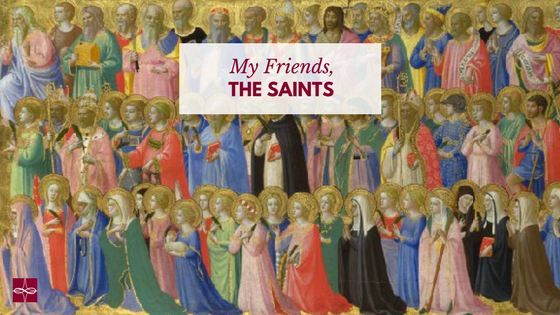

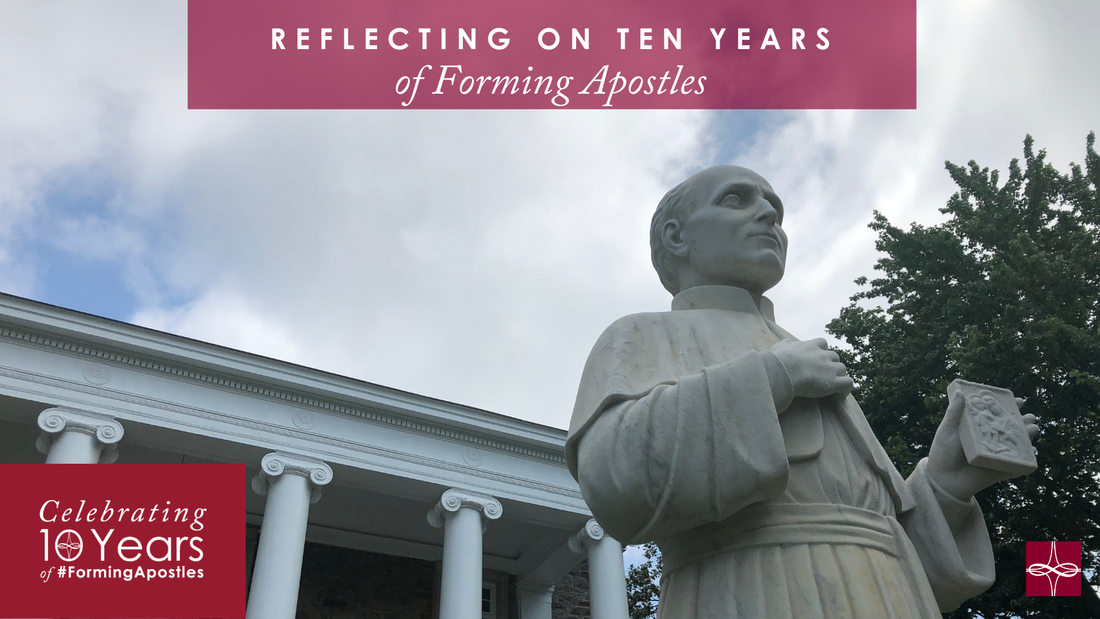

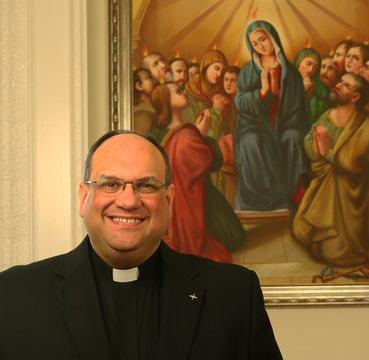
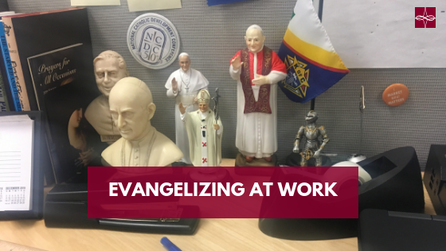
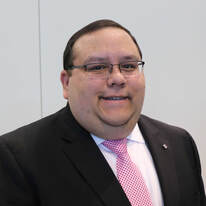
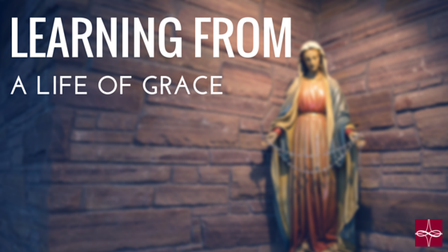

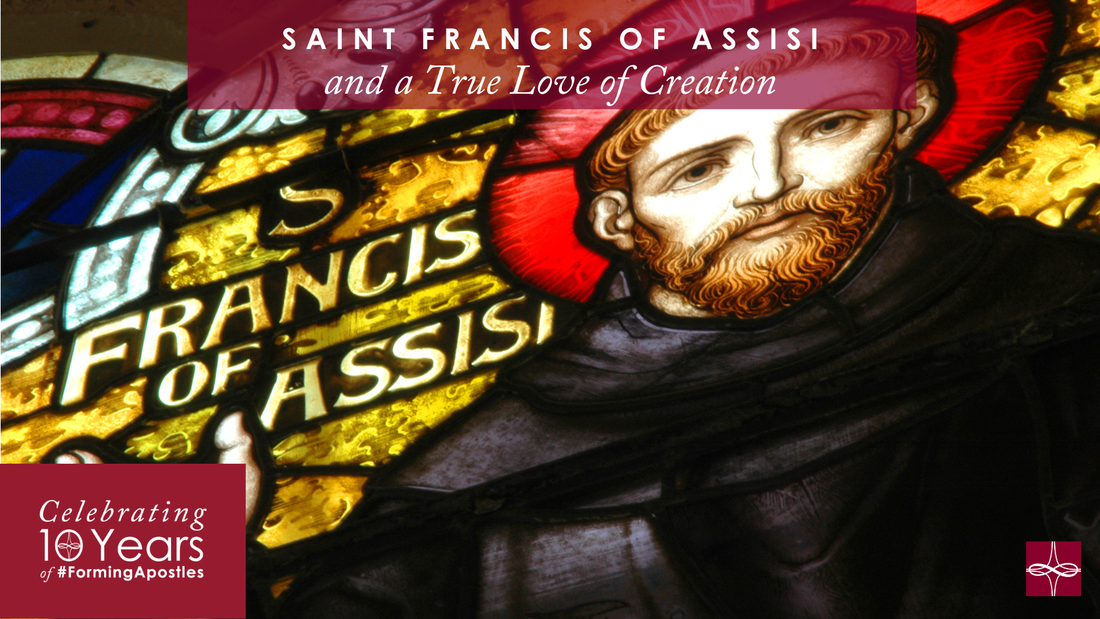

 RSS Feed
RSS Feed